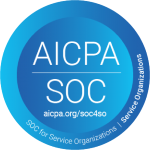Why and How Soft Skills Matter?

We often hear about the importance of soft skills in the workplace, but what exactly are they, and why do they matter so much? While technical skills (or hard skills) are crucial for performing specific tasks, soft skills – such as communication, teamwork, problem-solving, and emotional intelligence – are what truly set individuals apart and lead to success in a role.
Soft Skills – The Hidden Superpowers
A Harvard University study, conducted in collaboration with Stanford Research Institute and the Carnegie Foundation in 2017, found that 85% of job success comes from well-developed soft skills and only 15% from technical skills. In other words, knowing how to work effectively with others, manage your time, and communicate clearly is often what makes the difference between an average employee and a star performer. For example, consider a project manager. They need more than technical knowledge; they must communicate with team members, resolve conflicts, and keep everyone aligned to reach the project goals.
Why Interviewers Care About Soft Skills
When interviewers evaluate candidates, they aren’t just assessing technical abilities. They also want to know if the candidate will thrive within the company’s culture, work well in teams, and adapt to challenges. Interviewers often ask behavioral questions, such as, “Tell me about a time when you handled a difficult situation,” because these help them learn about a candidate’s soft skills in real-world scenarios.
According to a 2020 LinkedIn report, 91% of employers said soft skills are just as important as hard skills – and many felt they were even more important in long-term career growth. Employers use questions and tasks in interviews that reflect day-to-day scenarios to understand how candidates handle pressure, solve problems, and interact with others.

Key Soft Skills Employers Look For
There are a few soft skills that are universally valuable across industries. Here are some that most employers put an emphasis on:
- Communication: Both verbal and written communication are key. Whether it’s sending clear emails, presenting information, or listening actively, communication is foundational to success.
- Problem-Solving: Companies value employees who can think critically and come up with solutions. Interviewers may ask you to walk through a challenging scenario to see how you’d approach solving it.
- Teamwork and Collaboration: Employers want to hire people who can work effectively in groups, whether it’s through delegation, feedback, or simply maintaining a positive attitude.
- Adaptability: Flexibility and the ability to adapt to changing circumstances, particularly in today’s rapidly evolving workplaces, are essential for long-term success.
- Emotional Intelligence (EQ): EQ includes self-awareness, empathy, and interpersonal skills. Employees with high emotional intelligence can manage their own emotions while navigating the emotions of others, which is critical in leadership and team environments.
- Grit (Perseverance and Resilience): Grit is the ability to push through challenges, stay committed to long-term goals, and persevere even in the face of setbacks. It’s about passion and persistence. Employers value grit because it shows you can handle adversity and keep moving forward.
- Confidence: While often seen as a personality trait, confidence is also a soft skill. It’s about having self-assurance in your abilities and the decisions you make. Confident employees are more likely to take initiative, offer ideas, and lead projects. That said, confidence without overstepping into arrogance is key – being able to assert yourself while staying open to feedback.

Walk the Walk, Talk the Talk
Demonstrating your soft skills in real time can be the key to standing out. Here are some practical tips to help you walk the walk and talk the talk during your interview, giving your best self the chance to shine.
- When asked about your experience or how you’ve handled a situation, bring up concrete examples that showcase your soft skills. For example, if asked about teamwork, you can discuss a group project where you successfully collaborated with others. Be sure to mention how you communicated, delegated tasks, and handled conflicts if applicable.
- If you’re asked to walk through a challenging scenario, don’t just focus on the technical aspects. Highlight the process you used to solve the problem. Mention how you gathered information, sought input from colleagues, and adapted to new information. This shows your ability to think critically and solve problems under pressure.
- Make eye contact, smile, and show active listening. These non-verbal cues demonstrate confidence, emotional intelligence, and your ability to communicate effectively.
- Demonstrating empathy and self-awareness can set you apart. For example, if you’re discussing a challenging team dynamic, show how you navigated different personalities, understood what motivated your team, and adjusted your approach based on those insights.
- Talk about a long-term project or difficult goal you stuck with. Highlight the challenges you faced and how you stayed focused and motivated despite setbacks.
- Share moments where you took initiative or made decisions confidently but also showed openness to feedback or collaboration. Confidence in an interview is about demonstrating that you know your worth while staying humble and willing to learn.

